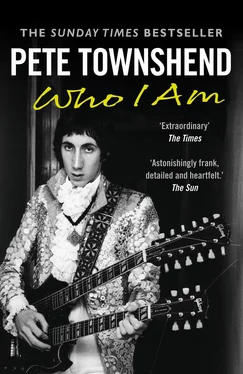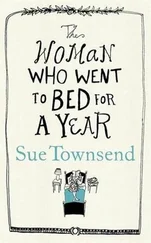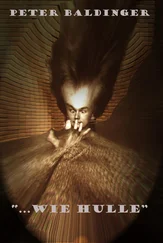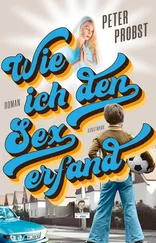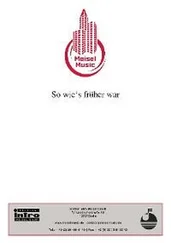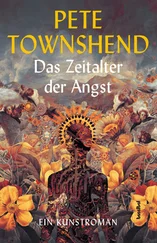***
The Talmy case came to court, and Kit and Chris lost. My demos were disallowed as evidence, and Shel was informed that his contract stood. This meant that we were still tied to Shel and the feeble royalty he paid us. I turned for guidance to Andrew Oldham, who took me for a ride down Park Lane in his stately chauffeur-driven Rolls-Royce. He told me he thought his friend Allen Klein might be able to exert leverage to break Shel’s grip, but to do that we might have to break with Kit and Chris. Klein wasn’t yet involved with The Beatles, but he was the Stones’ US publisher and managed the great Sam Cooke.
Allen Klein sent me a first-class ticket to New York, and in June I flew there in secret to meet him. Klein came to pick me up in his Lincoln Continental, exactly like the one I’d just bought, down to the colour. He made it clear that the only way I could escape Talmy’s grip was to repudiate my contract with Kit and Chris. If I gave him the word he would start proceedings, then he and Andrew Oldham – still at that time the Stones’ manager – would take over management of The Who. I flew back home and slept badly on the plane. I must admit I was seriously considering recommending to the band that we sack our managers. Friendship aside, I felt that the deal they’d committed us to with Talmy was criminal.
Guy Stevens, the DJ at the Soho Scene Club who’d helped Peter Meaden launch the singles he’d written for us, was now a record producer. He’d heard a rumour that The Who were getting involved with Allen Klein, so he came over one afternoon with his boss, Chris Blackwell, to plead with me to let them guide The Who. They seemed genuinely worried. Klein had a reputation as someone who took absolute control over any publishing he could lay his hands on – in other words, he was a music publisher like any other – so I wasn’t sure what the drama was about.
As they started to explain why I should avoid any involvement with Klein my doorbell rang. It was Kit, distraught, also having heard about my trip to New York. Guy and his boss hid in my study for half an hour while Kit anguished over the problems we all faced, and asked me to give him a chance to sort everything out. To crown this series of unsettling events I was evicted from my lovely Chelsea penthouse flat for making too much noise. Furious with myself, I went to stay with my parents until I found a new home.
An estate agent charged with finding me somewhere with no living neighbours got me a top-floor film-editing suite at the corner of Wardour Street and Brewer Street in Soho. It was a beautiful, light room with half-moon windows. A carpenter knocked me up a bed and some shelves for my tape machines and disk-jockey rig, and the flat became my recording studio and personal nightclub, though I rarely slept there.
For a while Karen shared a flat in Pimlico with a friend, then her father bought her a basement flat in Eccleston Square, close to Belgravia. I spent a lot of time there, going to Soho to work or when Karen and I had arguments. At night Soho was violent and sleazy, but if you lived there you found a way of moving about unnoticed.
Next door to my flat was Isows, a posh kosher restaurant whose owner would allow me breakfast sometimes at four in the afternoon, even on a Sunday. Once or twice I tried to fit into the gang at the Colony Club where the hard-nosed arty-alkies drank, and where I could see the painter-genius Francis Bacon and Daily Mirror diarist Daniel Farson in Wardour Street, deep in conversation. They were both very cool, but the brassy woman behind the bar tried to take the piss out of me, assuming I was a rent-boy because of my tight Mod trousers and pink shirt.
Once a group of us were in my flat smoking grass and listening to records at deafening volume when we looked up to find a policeman standing there. I thought we’d been busted, but he was just looking for a burglar who’d climbed over my roof. The rule of law barely held sway in Soho, but I loved it.
The studio was big enough so I could play the drums, and I learned how to play keyboards on a clunky Hohner Cymbelet electric piano I had bought from Jim Marshall. I tried hard to write orchestral pieces and recorded an instrumental I called ‘M’. Based on a 12-string guitar part that I made up as I went along, it ran for seven minutes, with rising and falling dynamics reinforced with basic drum overdubs and an additional guitar. I was immensely proud of this recording, which stands as one of the finest expressions of my free-form ability as a guitar-composer.
Roger, meanwhile, was cracking under the strain of Mike Shaw’s accident and rows over Keith’s drug use. He missed a number of gigs, where I had to stand in for him. Around May it appeared that he’d made up his mind to leave The Who entirely. My diary is venomous about him and the rest of the band, even about Kit and Chris. I’m also very hard on myself, challenging myself to deepen my study of Charlie Parker, Coltrane and Purcell, and to develop my guitar style. On the page I sound determined and unhappy.
The schism in The Who, that had first opened up when Roger punched Keith in Sweden, widened. One night Keith and John, with Jimmy Page, did a recording session with Jeff Beck (‘Beck’s Bolero’) and word spread that they planned to start a new group, christened Led Zeppelin. The Who’s first show after this was a modest gig in Newbury. Keith and John arrived very late – and very drunk. Roger and I had been holding the fort by playing without them, which was the pattern at the time. An argument broke out on stage, and – at my wits’ end – I threw my guitar at Keith. He tried to throw one of his larger drums at me and fell into his kit, gashing his leg. We were all utterly sick of each other.
A few days later, argument forgotten, I was driving down the M1 motorway in the early hours when I ran into an accident that had happened ten minutes earlier. Warning lights weren’t set up and for a critical few moments I ignored a man waving a torch, thinking he was trying to get a lift. When I hit the brakes they locked and the car went into a time-freezing drift. At the very last moment of my skid, I smashed tail-first into a Jaguar that had rolled over, and still contained two trapped elderly people waiting for an ambulance. They already had multiple injuries so that bump caused them considerable pain. I felt terrible for them, and shame for the habit I’d fallen into of driving too fast when the road was empty. I was convicted of careless driving and heavily fined, although I didn’t lose my licence.
The legal battle with Talmy had been lost, but only in the UK. Allen Klein wanted another meeting with me, so on 27 June 1966 I went back to New York once more, this time with our lawyer, Edward Oldman. This meeting took place on a chartered motor yacht that sailed around Manhattan as we listened to Barry Mann’s ‘Mandy’, and other songs Klein controlled. This was my first time on a luxury yacht, and I was surprised to find superb sleeping cabins on the lower deck. The New York night sky was alive and sparkling, and though I was suspicious of Allen I was captivated by the whole affair.
Another uneasy overnight flight home, and the build-up of frustration and exhaustion started to eat into me. As soon as I landed I drove to a Who gig in Sheffield, forgetting how far it was; when I arrived at about 10 p.m. the rest of the band had given up on me and gone home. I turned around and headed home myself. Not having eaten or slept for hours I fell asleep at the wheel, waking up upside-down in a ditch with petrol dripping on my face, and a police officer asking me if I was OK. I gave the breakdown man my Rickenbacker 12-string as a reward for pulling me out of the ditch.
My New York trip and Allen Klein’s obvious interest made it clear that some smart business people believed we’d soon break into America. Ted Oldman had reported to Kit and Chris that Klein was trying to take over the band, and they quickly brokered an out-of-court settlement with Talmy. He would no longer produce The Who and we’d be free to make a new deal with any record company we chose. This would improve things for all concerned. The Who would get a bigger share, and Shel would get a commission on all future recordings as well as participate in all recordings made during the period of his original contract, without having to work, or fund our sessions.
Читать дальше
